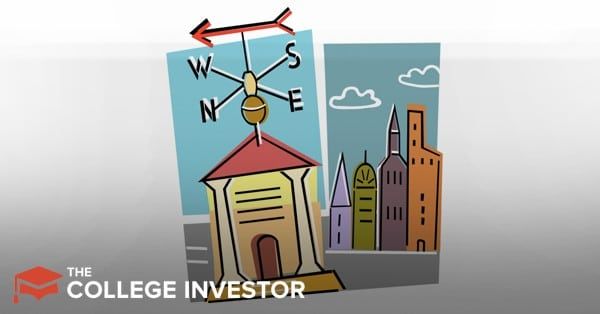
Recently, I left my employer of four years and one of the many things I had to consider was what to do with my 40(k). I never realized how much work it was to leave your job: I had to figure out which day I was going to quit on, where to do a 401(k) rollover, move my HSA, and I even had to get new health insurance.
Although I started off my career with contributions only up to the company match, I made sure to increase my contribution every time I got a raise or merit increase. After a couple years, I had finally maxed out my account and after four years, I had a pretty significant amount waiting for me.
Once I left my job, I was always planning on transferring my money to Vanguard where I hold my Roth IRA. But when it came time to do it, I felt like there were some things I wasn't considering. I've only worked for one company since I graduated college so all of this was new to me.
I've read about rollovers and how they work and the basics seemed pretty simple. You have the option to rollover your 401(k) to an IRA with another company, roll it over to your new 401(k), or leave it at your current employer. With the rollover option, you can either keep it pretax as a traditional IRA or roll it over to a Roth IRA and pay taxes on the conversion (yikes!).
My 401(k) Plan Was Really Good
I knew that I didn't want to convert to a Roth since I'd have to pay taxes. And because I worked for a top Fortune 500 company, my 401(k) plan was pretty solid. They had a wide variety of choices and ultra low fees. Although there was a monthly $2.55 account maintenance fee, that only amounted to an additional expense of 0.03% on a $100,000 portfolio.
If my old plan would have had high fees or poor/expensive investment choices I would have definitely rolled it over, but having a good 401(k) plan made the decision a lot tougher (as long as I kept $1,000 in the account, the account would remain active).
Does a IRA Rollover Make Things Simpler?
On the surface, having all your retirement accounts in one place seems like a good idea but there are a couple things to watch out for when converting a 401(k). If your income will be high enough in the future to exclude you from Roth contributions then holding a traditional IRA will eliminate the backdoor Roth option for you. Since tax law doesn't allow people with income over a certain amount to contribute to a Roth IRA or deduct traditional IRA contributions, they're forced to do what's known as a backdoor Roth.
Since there's no income restriction on converting to a Roth, the backdoor Roth strategy requires the investor to make non-deductible IRA contributions and then convert them to a Roth. If you've got a big traditional IRA lying around though, this backdoor method won't work since non-dedutible and deductible contributions are all treated as a single account. This is known as the pro-rata rule and it basically prevents you from doing a backdoor Roth if you have a traditional IRA in your name.
One smaller thing to watch out for is that if you ever need to borrow from your IRA, you would only be able to do a 60-day loan. But with some 401(k) plans you're often allowed to borrow for much longer periods, even after you leave the company.
IRA Rollovers Are Big Business
Although it would be nice to roll over my 401(k) to Vanguard, they don't offer anything in terms of rollover bonuses. Companies like Fidelity offer up to $600 (for account balances greater than $250,000) just for rolling over your 401(k). Their funds might not be as inexpensive as Vanguard but they're not that far off.
One thing to watch out for though is that some of these companies charge large fees to close IRAs. I still have $200 left in a TD Ameritrade Roth IRA because I refuse to pay $150 to close my account. I don't know if I would recommend rolling over to one of these companies but the bonuses definitely make it tempting.
Where To Rollover Your 401(k)
We have a list of the best IRA providers that have proven themselves for years. These companies are solid choices for where to rollover your 401k. They offer many of the same options, so it's personal preference on where you want to invest.
To start the process, all you have to do is go to one of these companies, select "Open Rollover IRA" and provide your 401k information. The company will handle the rest.
Fidelity
Fidelity is a full service broker that is known as an industry leader. They offer a great no fee IRA account, and they offer a variety of commission-free investing options.
They even have mutual funds with zero expense ratios.
Open an account at Fidelity here >>
Vanguard
Vanguard has always been known as a market leader in low cost investing. However, when you move to Vanguard, you're limited to Vanguard funds unless you pay much higher commissions.
Many companies are starting to strongly compete with Vanguard, but Vanguard is still a strong choice.
Open an account at Vanguard here >>
M1 Finance
M1 Finance is a relatively new company, but they have been growing incredibly fast because they offer commission free investing. You are a bit limited in what you can invest in, but if you can go with stocks and ETFs, it's a strong choice. Plus, they are adding new features all the time.
How To Rollover Your 401(k)
The process to rollover your 401k is relatively simple and straightforward. All you do is open your new IRA (or your 401k at your new employer), and then fill out some transfer paperwork.
If that sounds challenging, your new provider (i.e. Fidelity or Vanguard) will usually handle everything for you. They will do the paperwork required, reach out to your old provider, get things transferred, and ensure that your new account is setup.
If even that sounds overwhelming, there are new services available like Meet Beagle and Capitalize that will do it for you (sometimes for free).
Keep It Where It Is
Ultimately, I decided on keeping my 401(k) where it is right now. I'm not in any big hurry to get it out of there and complicate my life. Although I'll now have two 401(k)s when I find a new job, if the new one ends up being similar I could just roll it over there. I won't know for sure though if my new 401(k) accepts rollovers until I get a new job and take a look at their plan.
The problem with rolling over a 401(k) is once you do it, you can't ever put it back in the exact same spot. At times, the government doesn't make it easy to save money for retirement so it's up to you to know all the rules and regulations. Ultimately, if your 401(k) is a good plan, it might be in your best interest to keep it there and keep your options open.
Have you ever done a 401(k) rollover? What would you do in this situation?

Harry Campbell is a staff writer for the College Investor and runs his own website, The Rideshare Guy, where he talks about everything about ridesharing, side hustles, delivery, and more. Harry currently resides in Orange County, CA with his wife and family.
Editor: Robert Farrington Reviewed by: Chris Muller